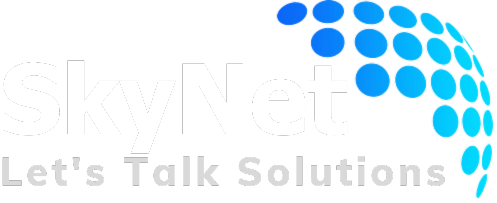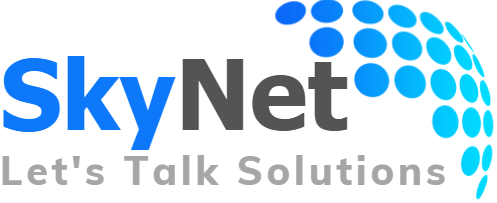Human Resource Management Systems (HRMS) are essential tools for modern businesses. They streamline HR processes, enhance employee engagement, and ensure compliance with regulatory requirements. This article explores the key reasons why every business, regardless of size or industry, should implement an HRMS.
1. Streamlined HR Processes
An HRMS automates and streamlines various HR processes, saving time and reducing administrative burdens.
- Recruitment and Onboarding: Simplify recruitment by automating job postings, applicant tracking, and onboarding processes.
- Payroll Management: Automate payroll calculations, tax deductions, and salary disbursements, ensuring accuracy and timeliness.
- Time and Attendance: Track employee attendance, leaves, and work hours accurately with integrated time-tracking tools.
2. Improved Data Management and Accessibility
An HRMS provides a centralized database for storing and managing employee information, making data accessible and secure.
- Centralized Records: Maintain all employee data, including personal information, job history, and performance records, in one secure location.
- Data Accessibility: Provide HR personnel and managers with easy access to employee data for quick decision-making.
- Enhanced Security: Ensure data privacy and security with role-based access controls and encryption.
3. Enhanced Employee Self-Service
Employee self-service portals empower employees to manage their own HR-related tasks, increasing satisfaction and reducing HR workload.
- Personal Information Updates: Allow employees to update their personal details, contact information, and emergency contacts.
- Leave Requests: Enable employees to apply for leaves and track their leave balances through the portal.
- Payroll and Benefits: Provide access to payroll information, payslips, and benefits enrollment options.
4. Effective Performance Management
An HRMS facilitates comprehensive performance management, helping businesses align employee goals with organizational objectives.
- Goal Setting and Tracking: Set clear performance goals and track progress through regular reviews and feedback.
- Performance Appraisals: Conduct structured performance appraisals with customizable evaluation criteria and automated reminders.
- Employee Development: Identify training needs, schedule training sessions, and track employee development plans.
5. Compliance and Risk Management
Maintaining compliance with labor laws and regulations is critical for avoiding legal issues and penalties.
- Regulatory Compliance: Ensure compliance with labor laws, tax regulations, and industry-specific requirements through automated updates and reminders.
- Audit Trails: Maintain detailed records of all HR transactions and changes for audit purposes.
- Policy Enforcement: Implement and enforce company policies consistently across the organization.
6. Efficient Talent Management
An HRMS helps attract, retain, and develop top talent, which is crucial for business growth and success.
- Talent Acquisition: Streamline the recruitment process, from posting job openings to onboarding new hires, to attract the best candidates.
- Succession Planning: Identify high-potential employees and create succession plans to ensure leadership continuity.
- Employee Engagement: Foster a positive work environment and engage employees through recognition programs and feedback mechanisms.
7. Cost Savings and ROI
Implementing an HRMS can lead to significant cost savings and a high return on investment (ROI) by optimizing HR processes and reducing manual work.
- Operational Efficiency: Automate repetitive tasks, reducing the need for manual intervention and minimizing errors.
- Resource Optimization: Optimize resource allocation by tracking employee performance and productivity.
- Scalability: Scale HR operations efficiently as your business grows without a proportional increase in HR staff.
8. Data-Driven Decision Making
An HRMS provides valuable insights through data analytics, aiding in strategic decision-making and workforce planning.
- Real-Time Analytics: Access real-time data on key HR metrics such as turnover rates, employee performance, and attendance.
- Customizable Reports: Generate customized reports to analyze trends, identify areas for improvement, and make informed decisions.
- Predictive Analytics: Use predictive analytics to forecast future HR needs, such as hiring requirements and training needs.
9. Enhanced Communication and Collaboration
An HRMS facilitates better communication and collaboration within the organization, fostering a more cohesive work environment.
- Internal Communication: Use internal messaging and notification systems to keep employees informed about company updates and policies.
- Collaboration Tools: Provide collaboration tools for team projects, performance reviews, and feedback sessions.
- Feedback Mechanisms: Implement channels for employees to provide feedback and suggestions, promoting a culture of continuous improvement.
Conclusion
An HR Management System is a vital tool for businesses seeking to enhance their HR operations, improve employee satisfaction, and ensure compliance. By automating routine tasks, centralizing data, and providing valuable insights, an HRMS allows businesses to focus on strategic initiatives that drive growth and success.
At SkyNet Technologies in Kampala, Uganda, we offer state-of-the-art HRMS solutions tailored to meet the unique needs of your business. Our systems are designed to streamline HR processes, enhance employee engagement, and support your organizational goals. Contact us today to learn more about how our HRMS can transform your HR operations and contribute to your business success.





